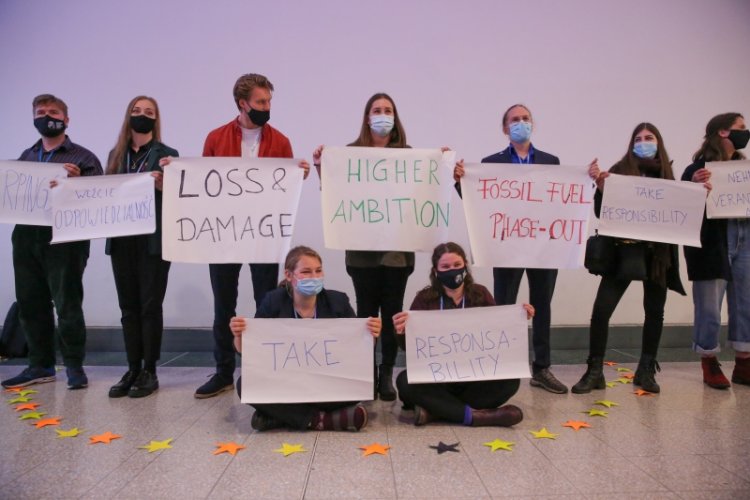COP27 must keep 1.5C in reach through raised ambition, and agreed Loss and Damage Mechanisms must be central to any outcome.
“For workers and their communities, the social dialogue vital for just transition plans, with jobs at their centre, must begin now. Nothing less than national jobs plans and company jobs plans can be accepted.
“Commitments on deforestation, methane, increasing finance for adaptation, recognising the need for more support for vulnerable countries and the agreed rules on carbon markets are all welcome but don’t go far enough.
“Science tells us that the absolute priority must be rapid, deep, and sustained emissions reductions in this decade – specifically, a 45% cut by 2030 compared to 2010 levels. We are still knocking on the door of climate catastrophe. Now it is time to see all governments and all companies get serious about transition plans – with just transition measures in all industries – if we are to have a fighting chance of staying within the 1.5 target,” said Sharan Burrow, general secretary, ITUC.
The voice of workers
After spending some $17.2 trillion on COVID-19 recovery, the failure of rich nations to commit to $100 billion a year in climate financing for vulnerable nations demonstrates negotiations taking place in bad faith. Equally, the resistance to settling a Loss and Damage Mechanism leaves affected communities in situations that are unconscionable. New financial regulation is critical: all investment must meet environmental and social rights bottom lines enshrined in legislation.
Despite the limitations of a Covid-19-impacted world for a global summit, 100 unionists from 30 countries were in Glasgow representing workers at a critical time when we need to address the climate emergency. Ensuring workers are a part of decision-making on climate policies and action, at COP26 and in national decision-making, is critical for building trust and driving climate ambition.
“We all know we are in a race against time for a sustainable future for both people and the planet. Investments in job creation – good climate-friendly jobs with just transition – are the key to building trust and support in the speed of the shifts required. Of governments, we need more ambitious and renewed nationally determined contributions (NDCs) with national jobs plans. Of companies in every workplace and sector, we need company jobs plans, agreed through social dialogue with unions in line with the ILO Just Transition Guidelines, which set the framework for how to do it," said Sharan Burrow.
No time for compromise
Workers and communities that are on the front lines of the climate crisis now do not have the assurances demanded of COP26 to deliver the financing for climate action and the recognition of a commitment to provide support for loss and damage already caused.
“Many governments let their people down by arguing for watered-down commitments that mean an agreement that fails too many vulnerable nations. We don’t have time for compromise, and COP27 must see a responsibility that delivers on major commitments from past UN climate conferences with new pledges for action.
“Unions are clear that ambition and just transition are joint pillars for action and demonstrate how national and sectoral dialogues can deliver ambitious plans with just transition,” said Sharan Burrow.
In Glasgow during COP26, frontline health workers and refuse collectors, unions, scientists and indigenous people from all over the world took to the streets when over 100,000 people joined together to call on governments to listen to the people and raise the bar on delivering for climate justice.


